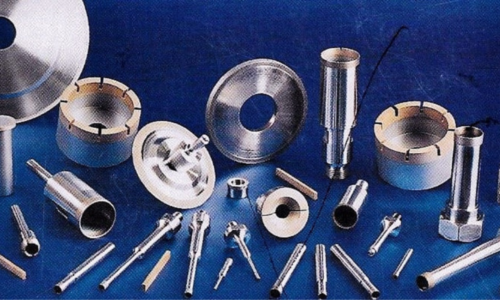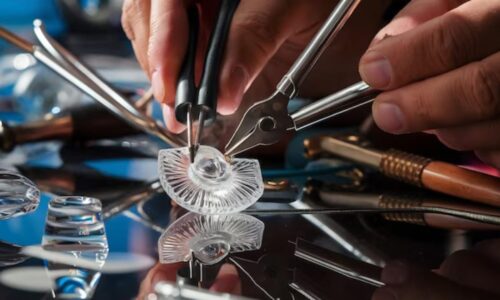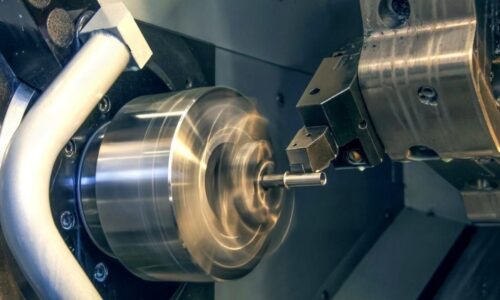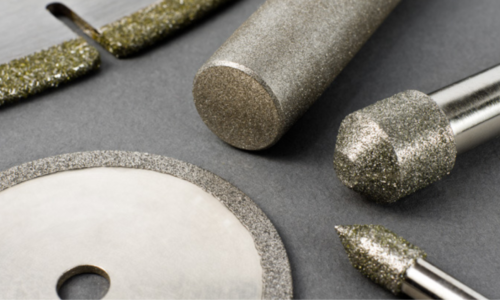
How to Properly Store Diamond Tools for Longevity and Performance
- By akshada
- Posted on
Diamond tools are special industrial tools known for their excellent durability, precision cutting, and overall performance. As a manufacturer of such great tooling, Jain Diamond Tools is acutely aware of the need to preserve the life and effectiveness of diamond tools through proper maintenance and storage. Whether applied in mining, construction, or manufacturing industries, improper storage can easily reduce the life span of diamond tools. We will provide insights into the best practices for storing diamond tools in order to maximize longevity and performance within this guide.
Why Proper Storage Matters for Diamond Tools
Diamond tools are the most demanding applications, but any diamond tool with such high quality can be easily degraded by poor storage. Here are the leading factors why proper storage is a must:
- Prevents Tool Damage: It’s because diamond tools possess very sharp cutting edges and surfaces, which may deteriorate if wrong storage procedures are followed.
- Maintains Cutting Efficiency: Dust, moisture, and physical impacts can collide with the sharpness or cutting precision of diamond tools.
- That reduces costs through the optimization of storage since extended life means tools will be replaced less often.
Key Tips for Storing Diamond Tools Properly
1. Clean Your Tools Before Storage
Prior to being put away, diamond tools must be cleaned. Contaminate accumulation during previous operations, such as dirt, debris, or tiny pieces of metal, may cause corrosion or wear and tear while stored. Cleaning ensures that no contaminants have undesirable effects on the cutting performance of the tool or even on the diamond segments.
2. Use Protective Packaging
You’ll find that a reputable manufacturer like Jain Diamond Tools offers a well-packaged product. You should not dispose of the packaging that comes with the tool as you are going to have to use that when storing your tool away. You can use foam custom inserts, padded boxes, or containers to protect the tool during storage in such a way so as not to collide with hard objects and not chip or even mar its surface.
3. Store in a Dry Environment
Humidity can be a silent killer for tools, mainly those with metal bonds, as it encourages rust. Always store diamond tools in a dry environment that contains minimal moisture. Try to acquire climate-controlled storage areas if possible, or at least avoid placing them where water sources may occur.
4. Separate Tools by Type
Never combine different types of tools in one compartment. For example, you should never keep a cutting disc with drills and blades together with grinding tools. Every diamond tool has its shape, size, and sensitivity. When they are kept together, they can damage one another. Place them in separated racks or compartments to prevent bumping.
5. Label Your Tools
For companies using a number of diamond tools, use tags to label each tool with its specific function, size, and usage history. This will enable the operator to identify the right tool for his task without exposure to unnecessary handling. It can further indicate last usage or date of maintenance check to ensure your tools are put to maximum use.
6. Avoid Stacking Heavy Tools
Other Misdirected Storages: It often warps, and especially in tools with fine cutting edge or segments. Never pile one heavy tool on top of another. Diamond tools should always be stored hanging or shelved separately, well supported for each piece.
7. Protect from Dust and Debris
Diamond tools get exposed to dust and dirt that may find their way into the diamond, causing dust and soil to collect in them. This will suppress their cutting efficiency aside from rusting the metal parts in the tools. Store your tools in a covered cabinet or wrap protective material—plastic—cover them and keep them clean without accumulation of dust.
8. Rotate Tools Regularly
If you hold quite a stock of diamond tools for an extended period, you need to cycle them from time to time. Cycling ensures that no single tool sits unused for too long, as this can cause oxidation or rust. It also enables you to regularly inspect every tool to check for signs of wear and tear.
Common Mistakes to Avoid in Diamond Tool Storage
Even when a company knows best practices, most commit common storage mistakes. Let’s look at a few and how to avoid them:
- Exposing Tools to Moisture: Humidity is the major contributor to rust or corrosion in any diamond tool. Always store your tools in a dry, temperature-controlled environment.
- Failure to Inspect Diamond Tools Periodically Even though in storage, diamond tools must be inspected periodically. This way, initial signs of wear, rust or other damage are found.
- Overcrowding Storage Spaces To avoid accidental damage, do not over stuff storage spaces. Overcrowding storage spaces leads to high chances of tools kept too close to each other causing damage.
Jain Diamond Tools: A Trusted Diamond Tool Manufacturer
Jain Diamond Tools sits at the very top concerning diamond tool manufacturing with regards to performance. We make our tools to last, however, even the best tools need proper storage to give maximum performance. Emphasizing durability and cutting precision, we offer a comprehensive selection of diamond tools for industries ranging from construction to precision machining.
It is a reliable diamond tool manufacturer that not only offers customers advanced tools but also informs them about tool maintenance. From circular saw blades and core drills to grinding wheels and many other tools, we are known for our excellence in assisting our customers in getting the maximum return on their investment.
The Benefits of Proper Diamond Tool Storage
Now that you know why correct storage of diamond tools is important, here are some of the key benefits of correct storage:
- Extended Life of Tools: Proper storage practices can extend the lifetime of the diamond tools appreciably.
- Better Performance: Better serviced tools result in more precise and cutting efficiency.
- Less Money for Maintenance: By preventing the occurrence of unnecessary and wasteful wear, proper storage will help prevent costly repairs or even replacing.
- Improved Safety: Well-maintained tools, if checked regularly, are less likely to lead to accidents or failures at work.
Why Choose Jain Diamond Tools for Your Business
At Jain Diamond Tools we make high-performance diamond tools for use by businesses in various industries. Here’s what we have for you:
- Diverse Products: With our diverse range, you can be sure to find the right tool for any job.
- We use the best materials to make our tools so that they will last longer and do the job better while cutting.
- We sell you the tools as well as give you expert guidance on tool maintenance and storage, thus securing the maximum value for your investment.
Conclusion
Proper storage will also help maintain the longevity and efficiency of diamond tools. According to the best practices above, keeping your investment in quality tools from Jain Diamond Tools running for years to come will be kept sound through proper storage techniques. In conjunction with appropriate storage methods, wear and tear on equipment will be minimized, safety will be maximized, and efficiency is upheld with your diamond tools to contribute to a more productive and cost-effective operation.
FAQs
Q-1. How often should I inspect my diamond tools?
Ans-It’s wise to check the tools after every use and at the moment of storing them, so that one can detect any problem developing in them in its very onset.
Q- 2. Can I store diamond tools in any temperature?
Ans- Although diamond tools can be exposed to any temperature, storage is ideal in dry, temperature-controlled conditions to avert rust and corrosion.
Q- 3. What should I do if my diamond tool shows signs of rust?
Ans- If your tool is rusting, clean it right away and apply a rust-resistant coating. Make sure the tool is dry enough before putting it to store again.
Q-4. Does Jain Diamond Tools offer packaging for long-term storage?
Ans-Yes, Jain Diamond Tools provide protective packaging of your tools for long term so that it remains in good condition.





